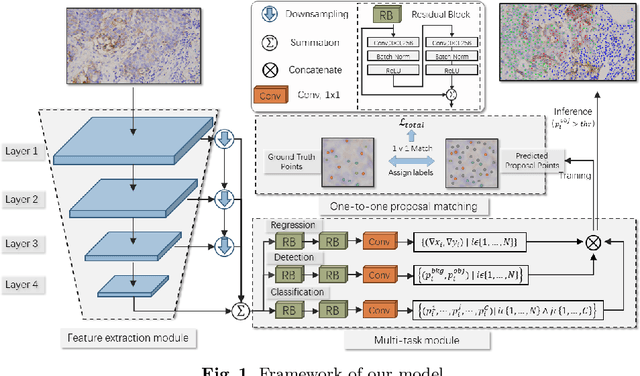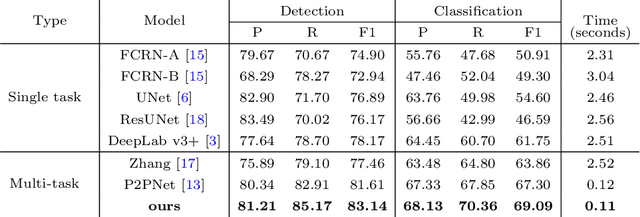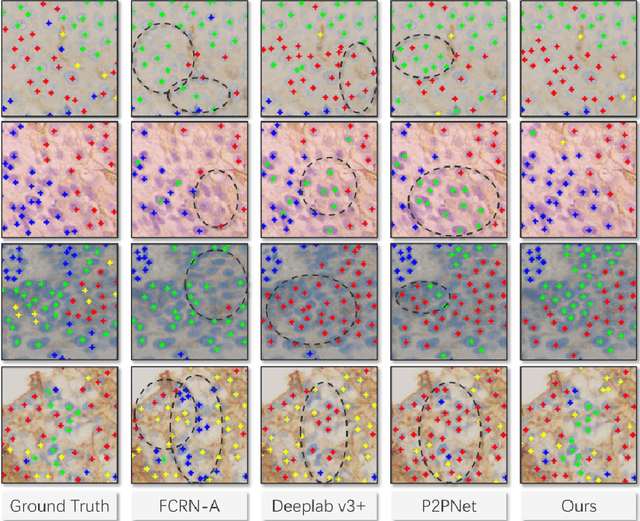End-to-end cell recognition by point annotation
Paper and Code
Jul 01, 2022



Reliable quantitative analysis of immunohistochemical staining images requires accurate and robust cell detection and classification. Recent weakly-supervised methods usually estimate probability density maps for cell recognition. However, in dense cell scenarios, their performance can be limited by pre- and post-processing as it is impossible to find a universal parameter setting. In this paper, we introduce an end-to-end framework that applies direct regression and classification for preset anchor points. Specifically, we propose a pyramidal feature aggregation strategy to combine low-level features and high-level semantics simultaneously, which provides accurate cell recognition for our purely point-based model. In addition, an optimized cost function is designed to adapt our multi-task learning framework by matching ground truth and predicted points. The experimental results demonstrate the superior accuracy and efficiency of the proposed method, which reveals the high potentiality in assisting pathologist assessments.
 Add to Chrome
Add to Chrome Add to Firefox
Add to Firefox Add to Edge
Add to Edge